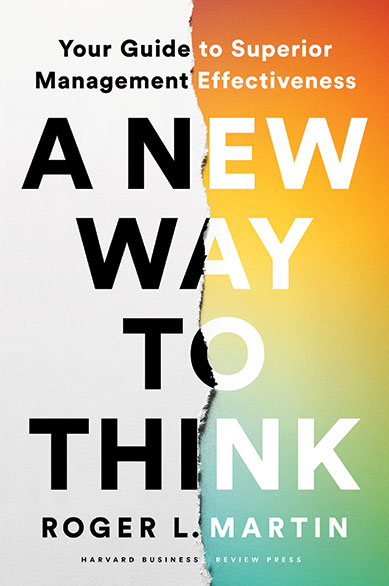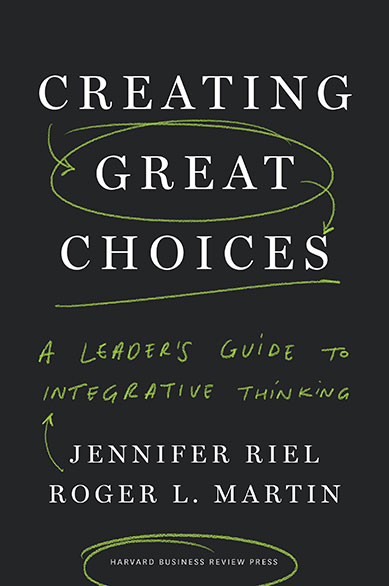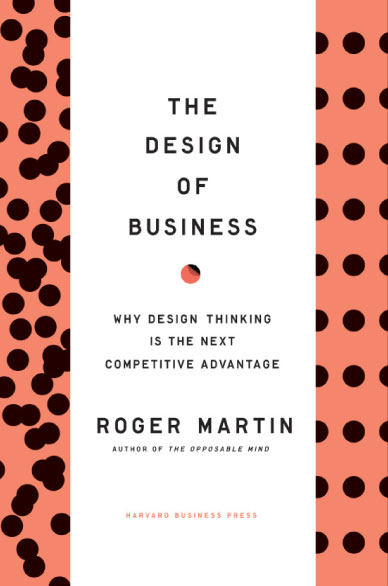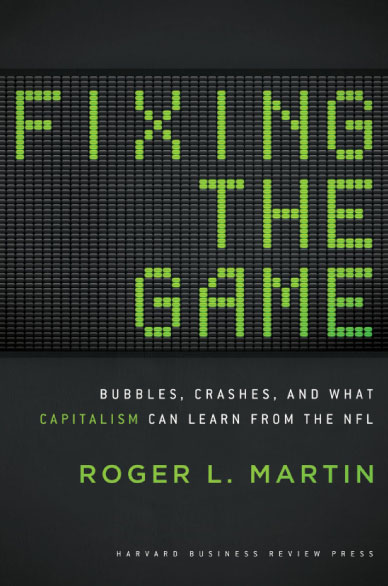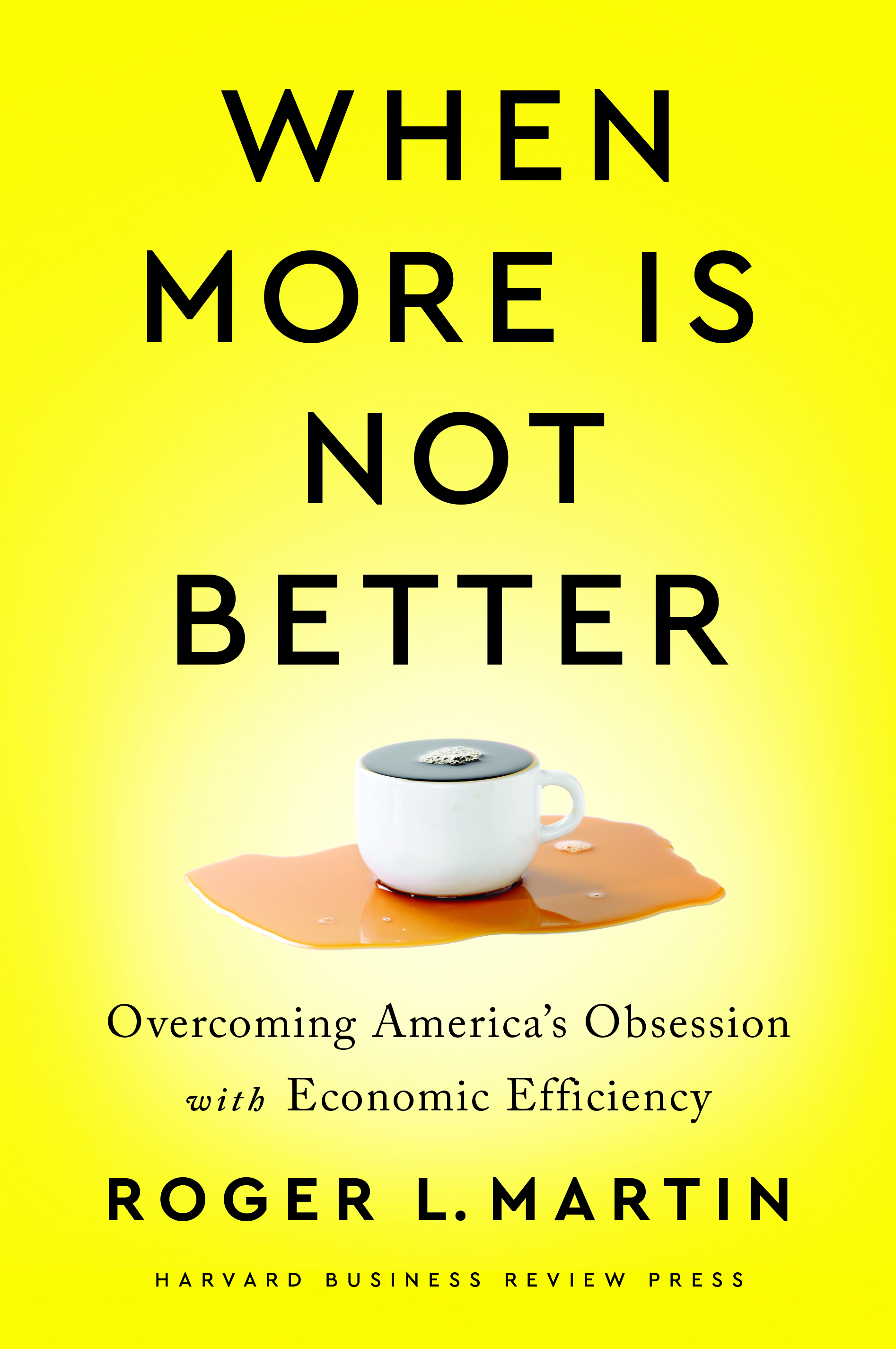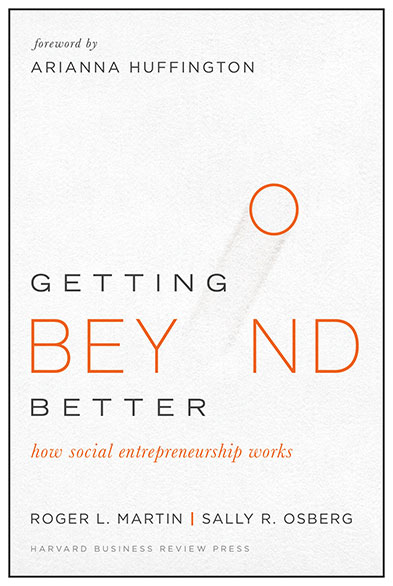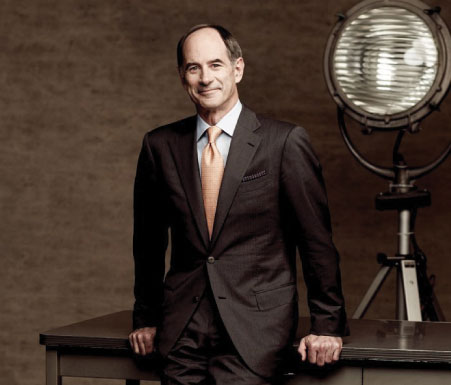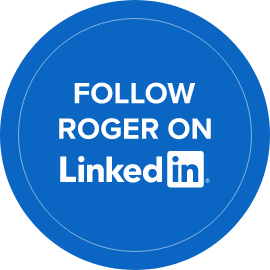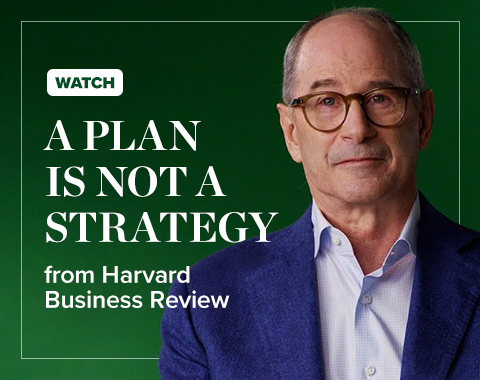-
The New York Times
Talent Shows
September 28, 2012
-
Harvard Business Review
The Age of Customer Capitalism
January/February 2010
-
Harvard Business Review
Capital vs. Talent: The Battle That's Reshaping Business
with M. Moldoveanu
July 2003
-
HBR.org
The Board's Role in Strategy
December 28, 2018
-
HBR.org
Why the U.S. Trade Deficit Can Be a Sign of a Healthy Economy
July 27, 2018
-
HBR.org
GE's Fall Has Been Accelerated by Two Problems. Most Other Big Companies Face Them, Too.
June 29, 2018
-
Palgrave Macmillan UK
The Gaming of Games and the Principle of Principles
2014
-
Harvard Business Review
The Public Corporation Is Finally in Eclipse
Roger Martin
April 2014
-
WashingtonPost
Roger Goodell’s balancing act
January 30, 2013
-
Bloomberg Businessweek
A Wall Street Resolution: Stop Giving Earnings Guidance
January 2, 2013
-
The New York Times
Free Agency in Baseball Did Not Create Stars
November 28, 2012
-
WashingtonPost.com
Mitt Romney, a Symbol of the ‘Talent Economy’
October 19, 2012
-
Drucker Society Europe Blog
The Gaming of Games
October 17, 2012
-
Forbes India Magazine
Roger Martin: Maximise Customer Value
May 22, 2012
-
WashingtonPost.com
Why We Can’t Seem to Cure CEO Pay
April 17, 2012
-
HBR.org
Do Financial Regulators Have Principles? Wanted: Financial Regulators with Backbone
March 22, 2012
-
Toronto Life
Why Roger Martin Believes the Corporate World Needs to be Overhauled—Starting with Excessive CEO Compensation
March 21, 2012
-
Huffington Post
Does a Trade-off Need to Stay a Trade-off?
January 19, 2012
-
The Huffington Post
Little Sally Learns About the Toxicity of Shareholder Value Maximization
January 18, 2012
-
The Huffington Post
Earning a Real Return on Real Investment
January 17, 2012
-
The Huffington Post
Why Chasing Expectations Is a Fool's Errand
January 16, 2012
-
The Huffington Post
The Circus In Which the Modern CEO Lives
January 15, 2012
-
The Huffington Post
What CEOs and Hedge Funds Don't Want the 99% to Understand
January 14, 2012
-
49th Shelf
What The Stock Market Can Learn from the NFL: An Excerpt from Roger Martin's Fixing the Game
January 8, 2012
-
Strategy & Leadership
The CEO's ethical dilemma in the era of earnings management
November 8, 2011
Volume 39, Issue 6
-
Reuters.com
Bank CEOs and the Infinite Pile of Cash
October 5, 2011
-
HBR.org
How to Make Companies Think Long-Term
October 3, 2011
-
HBR.org
CEOs Must Model the Behavior for Creating Societal Value
September 26, 2011
-
Reuters.com
Breaking the Government-Stock Market Feedback Loop
August 17, 2011
-
Toronto Star
Market Bull vs. Reality
August 16, 2011
-
Business Standard
Heart of Crisis Response
August 15, 2011
-
Reuters.com
Why Does Anyone Take S&P Seriously?
August 9, 2011
-
HBR.org
Are You Ready for Some Football?
July 25, 2011
-
The Globe & Mail
Plausible Deniability’s Not Lack of Responsibility
July 22, 2011
-
TheDailyBeast.com
Rupert's Willful Ignorance
July 21, 2011
-
Bloomberg Businessweek
A Sporting Chance for Regulating Capital Markets
July 12, 2011
-
The Huffington Post
Why Pepsi's CEO Should Continue Speaking Out
July 7, 2011
-
The Conference Board Review
The Trouble with Directors
Summer 2011
-
Commpro.biz
Joe CEO, Meet Joe Montana: Expert Reveals What Companies Can Learn from the NFL Lockout—and Why Capitalism May Be Headed for another Crash
Brian Pittman
July 2011
-
WashingtonPost.com
LinkedIn: A blockbuster IPO, but a big payoff is not a lock
June 4, 2011
-
HBR.org
The Nasty Truth about CEO Pay
June 3, 2011
-
Ottawa Citizen
Op-Ed: Reducing the Risk
June 1, 2011
-
Critical Eye
What Can American Football Teach us about Executive Compensation?
May 19, 2011
-
WashingtonPost.com
The Poor Folks at LinkedIn
May 13, 2011
-
The Huffington Post
Fixing the Game: The Dangers of Expectation
May 10, 2011
-
The Daily Beast
Earnings Season: Short-Term Focus, Long-Term Harm
May 5, 2011
-
Forbes.com
It's Only A Matter of Time Until The Next Crash
May 5, 2011
-
The Huffington Post
Old CEO Pay Theories Die Hard -- and Damagingly
May 5, 2011
-
FastCompany.com
The NFL: A Smarter Game with a Better Business
May 5, 2011
-
The Huffington Post
Fixing the Game: The Problem with Expectations
May 4, 2011
-
HBR.org
CEOs Should Be More Like Quarterbacks
May 3, 2011
-
The Huffington Post
Fixing the Game: What Capitalism Can Learn from the NFL
May 2, 2011
-
The Globe And Mail
Flawed Economic Theories are Destroying American Capitalism
April 29, 2011
-
The Globe and Mail
Why are CEOs Compensated Differently than Quarterbacks?
April 28, 2011
-
The Huffington Post
Fixing the Game: The Unintended Consequences of an Economic Theory
April 27, 2011
-
The Globe and Mail
What Capitalism Can Learn from the NFL
April 27, 2011
-
The Globe and Mail
How an Economic Theory Changed the Way CEOs Get Paid
April 26, 2011
-
The Daily Beast
Google Flips off Wall Street
April 25, 2011
-
The Huffington Post
Fixing the Game: What the NFL Can Teach Us About Executive Compensation
April 25, 2011
-
The Globe and Mail
The Next Financial Crisis Could Be Right Around The Corner
April 25, 2011
-
HBR.org
Board Chairs Should Be More Like Judges
October 14, 2010
-
HBR.org
Six Ways to Tell if You Have a Bad Board
September 29, 2010
-
HBR.org
Why Good Boards Aren’t There When You Need Them
September 20, 2010
-
The Financial Times
Reward Real Growth, Not Expectations
August 2, 2010
-
HBR.org
It’s Time to Tax the Wall Street Casino
May 11, 2010
-
The Washington Post
The Business of Fleecing Others
April 26, 2010
-
HBR.org
Regulators' Challenge: Correct the Error or the Cover-up?
April 19, 2010
-
The Daily Beast
Goldman’s Shell Game
April 19, 2010
-
HBR.org
Saving Stock-Based Compensation From Itself
March 22, 2010
-
HBR.org
Why CEO’s Don’t Owe Shareholders a Return on Market Value
March 11, 2010
-
HBR.org
Five Ways to Heal American Capitalism
March 3, 2010
-
HBR.org
Why Modern Business Is Bad for Your Mental Health
February 23, 2010
-
HBR.org
The Inauthentic Communities of the Modern Executive
February 17, 2010
-
HBR.org
What We All Lost When Business Lost Respect
February 9, 2010
-
The Daily Beast
Obama’s Real Wall Street Scheme
January 22, 2010
-
The Daily Beast
Wall Street’s Rigged Bonuses
January 12, 2010
-
HBR.org
The Goldman Bonuses: I'm Shocked, Shocked
October 16, 2009
-
HBR.org
Scrap Stock-Based Compensation and Go Back to Principles
July 10, 2009
-
The Toronto Star
Running Risks on Scoreboard and Big Board
June 5, 2009
-
The Globe & Mail
The CRTC’s Dial is Stuck on Failure
May 25, 2009
-
The Financial Times
Managers Must be Judged on the Real Score
May 11, 2009
-
Rotman Magazine
Undermining Staying Power: The role of Unhelpful Management Theories
Spring 2009
-
Rotman Magazine
Capital vs. Talent: The Battle Rages On
Fall 2008
-
Harvard Business Review
Forethought: Directing For All The Wrong Reasons
June 2006
-
Rotman Magazine
The Power of Happiness
Spring/Summer 2005
-
Rotman Magazine
Our Love-Hate Relationship with Monetary Incentives
Fall 2004
-
Healthcare Quarterly
Aligning the Stars: Using Systems Thinking to (Re)Design Canadian Healthcare
with Brian Golden
Fall 2004
-
Barron's
The Wrong Incentive
December 22, 2003
-
Rotman Magazine
The Fundamental Problem with Stock-Based Compensation
Winter 2003
-
Stanford Social Innovation Review
To the Rescue: Beating the Heroic Leadership Trap
Winter 2003
-
The Globe & Mail
Commitment Phobia: Too Many Investors Are Treating Share Ownership Like Anonymous Sex
Oct. 2003
-
Rotman Magazine
Capital vs. Talent: The Battle That's Reshaping Business
with Mihnea Moldoveanu
Fall 2003
-
AFR (Australian Financial Review) Boss Magazine
Talent vs. Capital
September, 2003
-
John F. Kennedy School of Government Compass Journal
The Coming Corporate Revolt
Fall 2003
-
The Ditchley Foundation Conference
Confidence Control and Compensation in the Modern Corporation
September 2003
-
The Globe & Mail
Workers and Capitalists, Unite!
with Mihnea Moldoveanu
July 28, 2003
-
The National Post
Smarter Regulation
July 11, 2003
-
International Academy of Management
The Problem with Corporate Governance
March 2003
-
Harvard Business Review
Taking Stock: If You Want Managers to Act in Their Shareholders' Best Interests, Take Away Their Company Stock
January 2003
-
Maclean's
How to Fix TV Drama
December 2, 2002
-
Maclean's
Our Dangerous Fear of Failure: An Excerpt from The Responsibility Virus
October 14, 2002
-
The Globe & Mail
Fear Makes Cover-ups Worse
June 18, 2002
-
The Walkerton Enquiry
Why do People and Organizations Produce the Opposite of What They Intend?
with M.A. Archer and L. Brill
2002
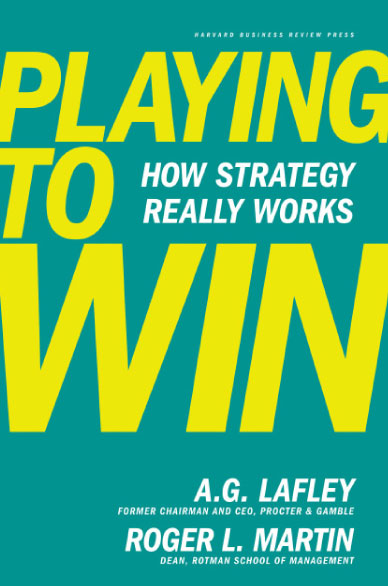 Buy the book
Book roger to speak
Buy the book
Book roger to speak
